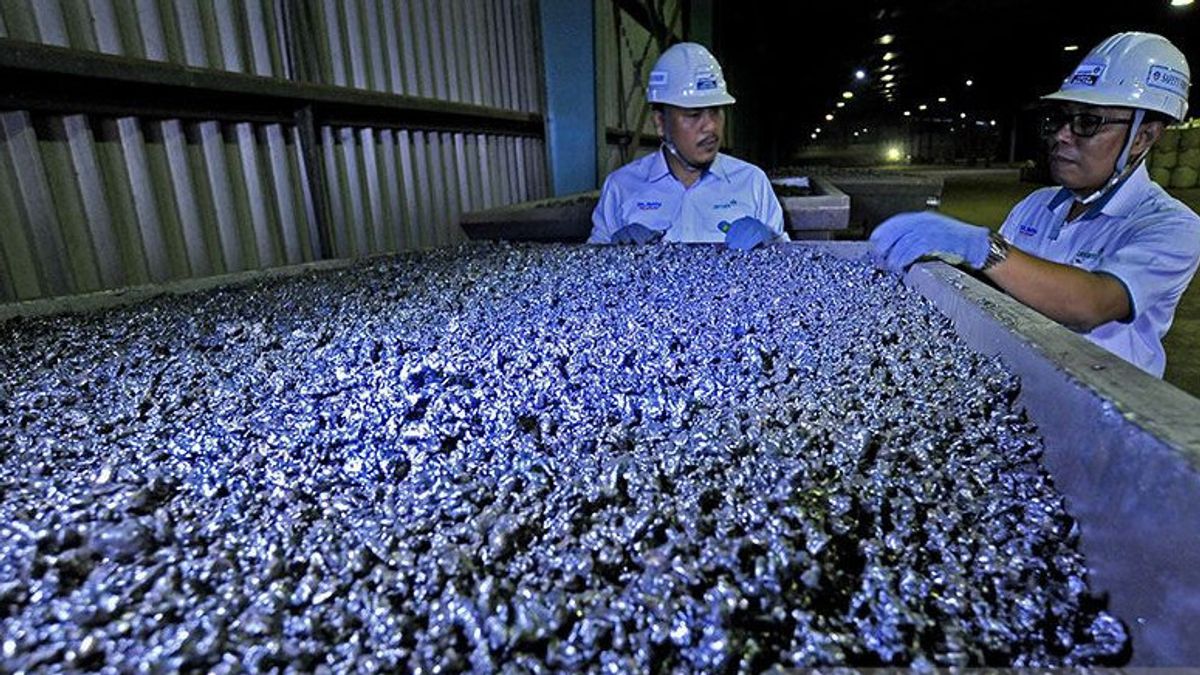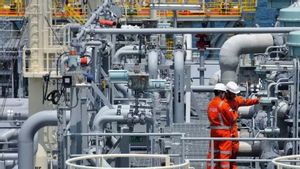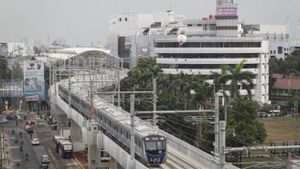JAKARTA - Vice President Ma'ruf Amin stressed that Indonesia must begin the transformation of an extractive economy towards an inclusive economy that prioritizes participation, innovation and ecology.
This assertion was conveyed by the Vice President in his remarks while attending the groundbreaking event for the Nusantara Industri Sejati (NIS) Industrial Estate in North Konawe, Southeast Sulawesi, Thursday.
"An economy with increased added value is not enough. Indonesia needs a productivity leap based on mastery of science and innovation, as well as being environmentally friendly. Indonesia must start its transformation from an extractive economy to an inclusive economy," said the Vice President as quoted by Antara, Thursday, May 19.
The vice president said that Indonesia was blessed by God with a wealth of natural resources in every inch of its land, one of which is a commodity with the largest reserves in the world, namely nickel.
Based on data from the Ministry of Energy and Mineral Resources, Indonesia's nickel reserves are 72 million tons or 52 percent of the world's total nickel reserves in 2020. This means that Indonesia plays a very important role in the supply of raw materials for world nickel products.
However, the Vice President reminded that if Indonesia is not wise in managing its natural wealth, it has the potential to experience an economic downturn.
"After all, Indonesia's natural wealth should not only be enjoyed by the current generation, but must also bring blessings to future generations. Thus, efforts to extract natural resources cannot be done excessively, but by paying attention to sustainability aspects," he said.
The vice president said that the downstream policy of the mining sector, which was the government's focus, was aimed at integrating the mining sector from upstream to downstream. It is hoped that this sector will provide maximum added value and greater benefits for the prosperity of the people.
For this reason, according to him, Indonesia needs to start an extractive economic transformation towards an inclusive economy.
He said South Korea's economic transformation was one of the most successful examples. In Korea, the innovation policy strategy that relies on export-oriented industries is supported by research and development synergies between industry and universities as producers of human resources.
The vice president explained that in the early 1970s, Indonesia's GDP per capita was 80 US dollars and South Korea's was around 279 US dollars. However, South Korea, which is moving in the path of a knowledge and innovation-based economy, has almost 8 times that of Indonesia's GDP per capita.
"In 2020, South Korea reached US$31,489 and Indonesia was only around US$3,869. In fact, Indonesia fell from US$4,135 in 2019," he said.
Ma'ruf Amin believes that if Indonesia consistently develops an inclusive economy combined with industrial downstreaming to fulfill the domestic and export markets, the benefit of natural resources for the welfare of the people will be realized.
Moreover, he said, until April 2022 the Ministry of Industry noted that there were 138 industrial estate companies spread across the islands of Java, Kalimantan, Maluku, Papua, Nusa Tenggara, Sulawesi and Sumatra.
"The increase in the number and area of land for this industrial area should be appreciated. As for the smelter, the government has targeted 53 facilities to operate until 2024," he explained.
The English, Chinese, Japanese, Arabic, and French versions are automatically generated by the AI. So there may still be inaccuracies in translating, please always see Indonesian as our main language. (system supported by DigitalSiber.id)













